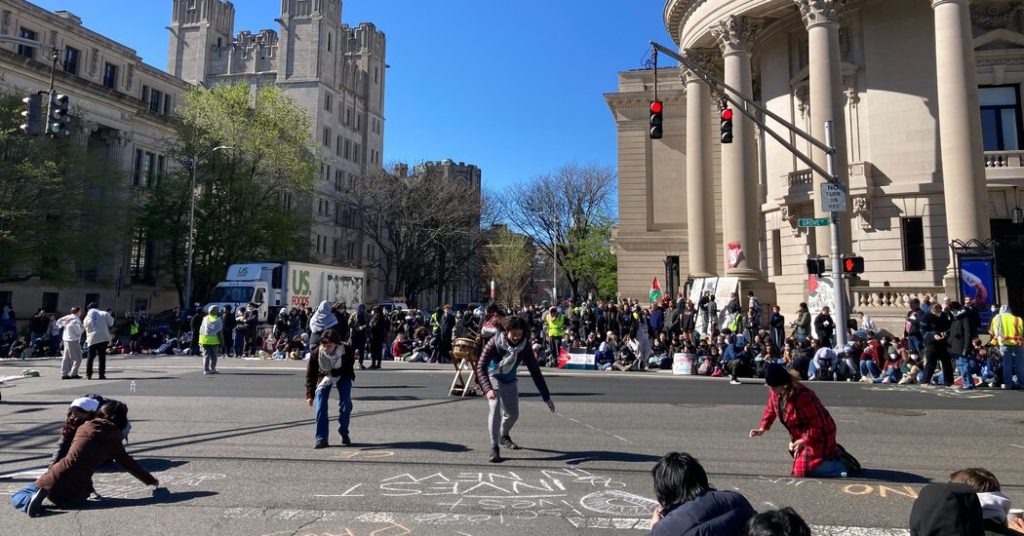At Yale University, at least 47 individuals were arrested during pro-Palestinian protests that spread to the school’s center in New Haven, Connecticut. The demonstrations began with an encampment set up at Beinecke Plaza on Friday night, as protesters called for transparency regarding the university’s investments in military weapons manufacturers and urged divestment from those companies. Despite repeated requests from the university for protesters to leave and warnings of potential consequences, negotiations with leading trustees broke down by Sunday, leading to the arrests on Monday.
During the police action at Yale, 47 summonses were issued and arrested students could potentially face discipline from the university itself, including suspensions. The decision to arrest individuals who refused to leave the plaza was made with the safety and security of the entire Yale community in mind, as well as to ensure access to university facilities for all members of the community. This incident at Yale occurred just days after over 100 students were arrested at Columbia University in New York, where a similar encampment was set up by pro-Palestinian demonstrators.
The spreading of these protests to campuses like Yale and Columbia reflects a growing movement among students advocating for Palestinian rights and calling attention to university investments in companies linked to human rights violations. The actions taken by students at Yale and Columbia signal a willingness to engage in civil disobedience in order to raise awareness and effect change. The protests have drawn attention to the issue of divestment from companies that profit from or contribute to violence and conflict in the Middle East, prompting universities to reevaluate their investment practices.
The arrests of individuals at Yale and Columbia have sparked discussions about the role of universities in addressing social justice issues and the limits of free speech on campus. Critics argue that the arrests infringe on students’ rights to peaceful protest and express dissenting viewpoints, while others defend the universities’ actions as necessary to maintain order and ensure the safety of the campus community. The protests have also ignited debates about the Israeli-Palestinian conflict and the need for universities to take a stand on issues of human rights and ethical investing.
As the situation continues to develop, it remains unclear how Yale and Columbia will respond to the protests and whether further actions will be taken against demonstrators. The growing momentum of the pro-Palestinian movement on college campuses suggests a shift in attitudes towards Israel and Palestine, with students increasingly willing to challenge university policies and demand accountability from school administrations. The arrests at Yale and Columbia have raised questions about the future of activism on college campuses and the ability of students to effect change through nonviolent resistance and civil disobedience.


